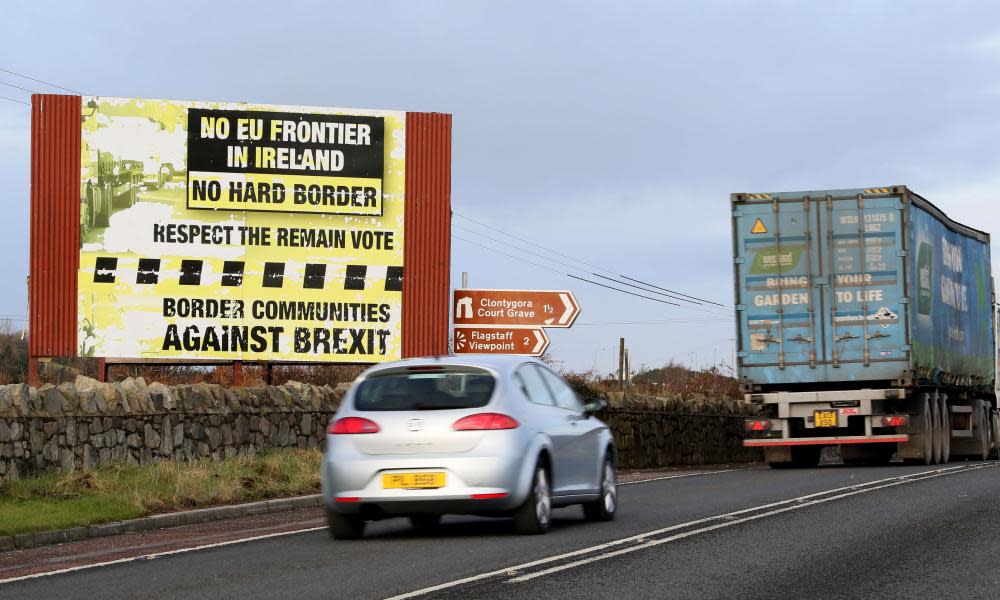Northern Ireland papers: no simple solution to hard border, say UK officials

Senior British officials privately conceded last year that the UK’s preferred solution for avoiding a hard border with the Republic after Brexit would threaten the EU’s single market and that all possible outcomes would be damaging for the province.
A series of leaked letters and briefing papers from the Northern Ireland executive – at least one of which was sent to Olly Robbins, the prime minister’s most senior Brexit adviser – lay bare the huge difficulties created by Brexit.
The political “difficulty” of accepting the EU’s backstop solution of keeping Northern Ireland in the customs union and a large bulk of single market legislation was discussed.
The documents even raise proposals to follow the Lichtenstein model – a set of agreements that allows that country to be in both the EU and Swiss economic area – only to conclude they are not an ideal fit for Northern Ireland.
Most troublingly, however, an internal working paper drawn up by Northern Ireland’s economic department, marked “official sensitive”, concludes that whatever the option chosen, the economy will suffer.
The executive wrote: “There is no quick or simple solution to the land border.
“There is likely to be some negative impact on the economy whether border controls are sited at the land or sea border, at least in the short-to-medium term.
“The policy question is therefore how these impacts can be minimised and what transitional support is required.”
This week, Downing Street insisted that it would not U-turn on Theresa May’s pledge to leave the customs union, despite the EU’s rejection of the “customs partnership” proposed by Downing Street to avoid a hard border on the island of Ireland.
Under Downing Street’s preferred plan, small traders would not need to undergo checks at the border because of a trusted traders scheme.
The UK would also take responsibility to ensure that goods coming into Northern Ireland, that did not match EU standards, did not move on to the 27 member states.
The Northern Ireland papers, leaked by the European parliament group that includes Sinn Féin, illustrate that the weaknesses of the proposals have been well understood by the UK government.
David Sterling, the head of the civil service in Northern Ireland, wrote to Robbins about the trusted trader scheme: “The dividing line between businesses of different sizes in Northern Ireland supply chains will undoubtedly be blurred. This could make it difficult to accurately define which businesses are exempt from customs processes.”
On what he described as the “back-door” danger for the EU in the UK taking responsibility for keeping goods below Brussels standards from moving on from the UK, Sterling said: “The visibility and impact of a ‘robust enforcement mechanism’, to ensure goods not complying with the EU’s trade policy (whether through a lower tariff or diverging standard) stay in the UK, is a significant challenge.
“The example of Turkey illustrates that customs duties are only one part of the picture and technical barriers can be equally disruptive to trade.”
Negotiations between the EU and the UK over the border in Ireland are due to restart next week, with the issue also due to be discussed by the cabinet within days.

 Yahoo News
Yahoo News 
